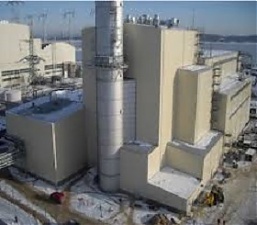Analytics, Energy, Energy Market, Lithuania
International Internet Magazine. Baltic States news & analytics
Friday, 19.04.2024, 18:44
Lithuania needs to invest into power production
 Print version
Print version |
|---|
According to Rimvydas
Stilinis, director of infrastructure at Epso-G,
Lithuania has to take action fast as electricity demand in the country during
peak time will grow 8% by 2025, and aged and ineffective production capacity
will drop 38% during that time. Meanwhile, the implementation of a new project
usually takes four to five years.
Stilinis says the country needs to cut power imports and
increase its production locally for several reasons.
"First of all, peak demand for electricity will grow,
also the synchronization (of the Baltic states' power systems with that of
continental Europe), as well as an ageing capacity infrastructure. On of the
options to increase power generation is capacity mechanisms. This is an
instrument to promote new investment," told Stilinis.
He also warned that if measures were not taken to increase
production capacity, the loss of load probability, measured in hours per year,
would increase considerably as of 2023. European countries usually set 3 to 8
hours a years as the standard of the loss of load probability.
"Research shows that we'll need additional capacity. If
we fail to set new standards and promote investment, the loss of load
probability might rise to 62 hours per year in 2024. In our case, it's
unacceptable," Stilinis said.
In his words, Lithuania needs additional 280MW of capacity
in 2025, if the standard for the loss of load probability is set at 8 hours a
tear.
He also added that research by the Kaunas University of
Technology shows that without additional generation capacity solutions, the
loss of load probability might even reach 120.3 hours a year in 2025.
In September, Lithuania started drawing up a capacity scheme
suitable for the country, Stilinis said, adding that there would be two dates
important for market participants. Public consultations on the scheme will take
place in January or February, and the first capacity action is expected to take
place and its winner to be picked in the first quarter of 2020.
These auctions are unique, Stilinis said, as they will be
technologically-neutral. Due to restrictions on the CO2 emissions, producers
will not be allowed to generate power only from coal.
Poland called the first capacity auction in November, with
the initial power price set at 56.01 euros per MWh.
Lithuania has been importing the majority of power since
2009 when its nuclear power plant in Ignalina was shut down. The country's is
importing over 80% of power for its needs this year.








 «The Baltic Course» Is Sold and Stays in Business!
«The Baltic Course» Is Sold and Stays in Business!

